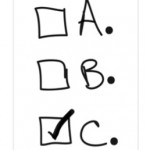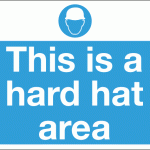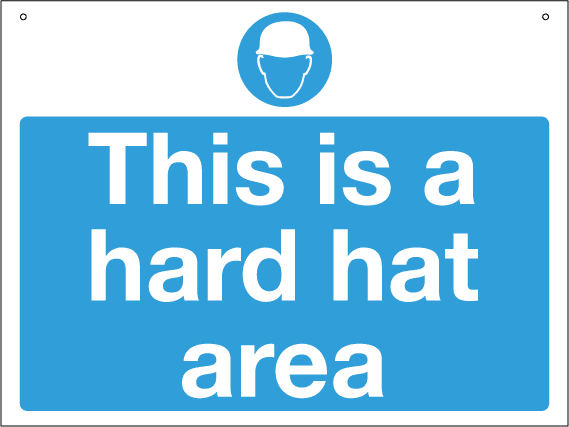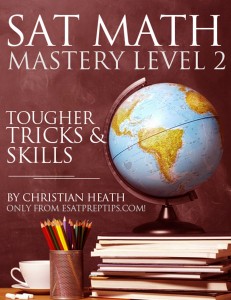 Welcome to my SAT tutoring blog! Please join my mailing list while you’re here so I can send you my Urgent Report on SAT Reading and other subscriber-only tips!
Welcome to my SAT tutoring blog! Please join my mailing list while you’re here so I can send you my Urgent Report on SAT Reading and other subscriber-only tips!
Are you ready to deal with the challenges of the SAT test and its rigorous time limits?
The SAT, probably the most famous standardized test in the world, is not only tricky and difficult, but stressful as the seconds on the clock keep ticking away.
At least, the time limits on the test can be stressful. There’s a lot you can do for yourself to minimize this time-related stress and maximize your score, and it all begins with knowledge.
- Know yourself.
- Know the test.
- Know your fundamentals.
If you’re in control of these three elements, the SAT time limits will lose a lot of their power over you. And that’s what I’m here to help you with today.
Keep reading to get a pro tutor’s (and perfect-2400-scorer’s) deep insights into strategies and concepts that help you make the most of your time!
What is the SAT test?
Oh come on, shouldn’t you know this by now? Hehehe.. teasing, teasing…
Well, just for anyone who’s late to the party, let’s remind ourselves that the SAT is a standardized test, taken by high school students, and used primarily by colleges and universities as well as college-scholarship committees in the United States to help admissions departments evaluate the academic achievement level of applicants.
The SAT primarily involves the following skills and topics:
Get Exclusive SAT Prep Tips!
I want to send you more tips to help your SAT score, but I need your email address to stay in touch. Enter your email below so I can send you my reports on the SAT and other subscriber-only bonuses.
- Basic Algebra 1 and Math Skills
- Intermediate Geometry and Algebra 2
- Logical Reasoning
- Reading Comprehension
- English Vocabulary
- Rules of English Grammar
- Essay-Writing
Of course, you can browse and search the various sections of my website to get further details about these topics.
(Better yet, download my personal SAT prep book collection! These books are designed to take any student to the next level in whatever areas of the test they are struggling in, and are the exact same books I use to teach my local tutoring students at a rate of $75 per hour or more… and my tutoring waitlist is backed-up for months!)
Also, if you haven’t done a whole lot of research on colleges, applications, SAT scores, etc, I highly recommend you read my article What is a good SAT score? to put the numbers in perspective. My favorite students are the ones who know what their goal score is, and why. They study hard until they reach that score, then they stop and focus their energy on more interesting pursuits.
In other words, the SAT is an important part of your college and scholarship applications – very important, in many cases! – but it’s still only one slice of your complete application, which will probably also involve your GPA, activities and accomplishments, application essays, teacher recommendations, sports, jobs, etc.
Keeping the whole SAT-test-experience in the appropriate perspective can be an effective strategy to minimize pressure and stress.
Why does the SAT have a time limit?
Well, that’s a good question you’ve got there – why does the SAT have a time limit for each section? Here are some of my thoughts and the reasons I’ve come up with (please add your own in the comments!)
- Time limits add pressure in order to reflect the pressure of college exams (the SAT is about college readiness, after all, and your exams will need to be finished within the space of one period in college)
- Shows time-management skills (again, colleges know that they overwhelm students with competing demands on time, and it’s very appealing to see a high school student who can handle the pressure)
- The College Board has to pay its employees and SAT testing day can’t just go on forever. It would cost a fortune to pay each hour of overtime for testing centers around the world to stay open without a time limit.
- Most students wouldn’t use the extra time – they don’t want to sit around all Saturday morning taking a test; they have lives to lead.
- Let’s be honest – given a choice between two students who can both solve a hard math problem, but one solved it within a time limit, wouldn’t we all prefer to accept the speedier student?
The SAT has changed many times over the years, but interestingly, one constant has been that most students are not expected to finish every question.
Don’t worry – you can get a great score, and go to a great college, without ever finishing a single SAT all the way through (although of course, the farther you can go – accurately – the better!)
How some students can get extra time on the SAT:
Alright, I figured now would be a good time to briefly bring up a related side topic – testing accommodations for students who meet certain conditions for professionally-documented physical disabilities or learning disabilities.
I’ve written an entire post that you will find very helpful if you believe you may fall into one of these categories.
Keep in mind this is stuff like ADHD, dyslexia, health problems with sitting still for four hours, etc.
For more details, read Extra Time Accommodations on the SAT.
Should you rush through the SAT?
 No, no no!
No, no no!
Never rush. You can’t just decide to “go faster.”
Your test-taking speed is a result of other, earlier, more important factors like knowing the fundamentals, studying your vocabulary, expanding your reading skills, and doing practice tests.
You can’t focus on improving your “speed” – speed comes along for the ride when you master your fundamentals.
Forget about “going faster” or “rushing” – they are counterproductive and lead to more mistakes and wrong answers, which will eat away at your SAT score.
Instead, try some of the following specific tips:
How to go faster on any part of the SAT:
In just a moment, we’ll get into some sub-topics about how you can go faster on each section of the SAT individually.
First, though, let me emphasize the common strategies and wisdom that works for all time pressure on the test.
The following tips can be applied to any section of the SAT to make the most of your limited time and increase your score.
1. Master the fundamentals:
Every section has its particular basic fundamentals. In the reading, it’s vocabulary and reading comprehension. In the math, it’s basic and intermediate Algebra and Geometry. In the Writing section, it’s understanding the basic rules you’re tested on.
2. Practice with official tests:
Practice can never hurt. It can only help. As you gain exposure to the test, you’ll develop a “sixth sense” that alerts you to tricks, traps, careless mistakes, and common shortcuts. Make sure, though, that you’re checking and correcting your answers – and hire a professional tutor if you need anything explained.
3. Skip questions freely:
Most students that I teach are not fully aware of just how many questions they can skip, while still receiving an excellent final score. It all depends on what your goal score is. From there, you can use the scoring tables in the Official SAT Study Guide to figure out how many questions you can skip (skip the hard questions, obviously!) The more “impossible” questions you skip, the more time you’ve saved for the questions you can answer.
4. Know when to guess and don’t dawdle about it:
First, make sure you know when to guess on the SAT. Second, once you’ve decided to guess, just get it over with (particularly when it comes to vocabulary questions). By definition, if you’re “guessing,” you’ve reached the point where logical thinking can’t take you any further – you’ve hit a mental roadblock. So don’t sit there pretending to think when really, you’re just stressing out. Just pick an answer and move on – you can come back if there’s time.
5. Rushing is counterproductive:
Rushing has never raised anyone’s score on the SAT. Mainly, that’s because you lose 1/4 of a point for each wrong answer, so it’s better to leave questions blank than to get them wrong. Careful, reasoned, methodical work is what I teach my students, because it’s continually what actually works. It’s better to get one question right and skip the next three entirely, than it is to get one right and miss the next three.
6. Use all your time:
Not the most popular advice for students who are getting fidgety, bored, and tired, but truthfully, you should not be the student who puts his or her head down with 10 minutes left in the section. I know exactly how hard it is to stay focused (I was diagnosed with ADHD as a child) but you just have to go hard and stay on track for about 4 hours. It’s not physically impossible, just tough. Please, do your best from start to finish.
Specific Timing Tips For Each SAT Section:
Ok, now let’s get into some section-by-section concepts and strategies that I teach my tutoring students.
These may seem like common sense (and perhaps they are!) but you would be really surprised to learn how many students just don’t follow through on them.
Simply being the one to actually put some effort into these strategies may make the difference between being accepted and being denied admission at your favorite college!
How to speed up in Critical Reading:
Often, students identify as “slow readers” by nature when the real problem is either A) not enough time reading or B) a weak vocabulary. Either of these deficiencies will make a student feel “slow,” but speed itself is not actually the problem. Here are some tips on how to improve.
1. Increase your free reading time:
The most important factor in a student’s Critical Reading score is… how often they read on their own. Not surprising. Here’s a tip – sign up for my (FREE!) SAT mailing list and you’ll get an instant (also free!) bonus: My recommended reading list of 20 books that will get you started. I read all the time when I was younger, and as a direct result, it was dead-simple to get a perfect 800 on the Critical Reading.
2. Study a little vocabulary every day:
After working with 200+ students, I’m willing to bet my career on the following hypothesis: the single main reason that students get Critical Reading questions wrong is because they are missing key vocab knowledge. The authors of the test frequently place a tough vocab word in a key position for a question or an answer, and if you don’t know the exact meaning of that term, you’ll have no chance to intelligently evaluate that answer choice. There’s no way around studying SAT vocabulary!
3. Improve your note-taking strategies:
Effective note-taking is the first thing I teach all of my tutoring students. It may slow you down by a few seconds, but actually you save time in the end when your comprehension and memory are much better, which results in less time wasted on re-reading. Here’s my best post about taking notes on the Critical Reading section.
4. Know when you’re beaten by vocab and move on:
The biggest hurdle in the Critical Reading is often the tough vocabulary. If a certain vocabulary word is unknown to you, stop pretending that you can figure it out by like, glaring at it. Admit when you don’t know and accept it. Either skip this question or use smart guessing strategy to quickly narrow down and take a stab at it. Most importantly, don’t get sucked in to any one single question. It’s never worth it.
Enroll in my Conquer SAT Vocabulary video course for more in-depth tips!
How to go faster in SAT Math sections:
Fundamental mastery and practice with the real thing will prepare any student to recognize and effectively handle whatever the SAT Math section throws at them. Don’t let your ego get in the way – hard questions aren’t worth any more points than easy questions, but can take 10 times longer to complete.
1. Math fundamentals are critical to speed:
Know what you’ll be tested on and master it. When I get stuck, I frequently wonder to myself “What did the author of this question want to test me on? What skill(s) did they expect me to use here? Let me give that to them.” Often, this leads me to remember what fundamental skill I’m being quizzed on. Learn your weak spots and quickly fix them with my SAT math books Level 1 and Level 2, which are available to download instantly along with the rest of my books.
2. Real SAT Math experience helps enormously:
The SAT Math section is not like other tests you’ve taken in high school, and if you treat it like it is, your score will be hurting because of it. You need to get experience with this test… you need to fall for a bunch of tricky traps before you can avoid them next time. It’s all about making your mistakes in practice so that you don’t make them on the day of the real test. Also, you’ll move much more quickly when you have a confident idea of how the SAT tries to trick and confuse students. I no longer re-read math questions over and over, because I know what to look for from experience.
3. Smart time budgeting is crucial in Math:
All questions are worth the same amount of points, no matter how hard or easy they are, or how long you spend on them. Each SAT Math section continually increases in difficulty from question to question, so only do the final questions if the earlier ones are A+. You may have to let go of your ego, which demands that you get the hardest math questions right. However, it’s much more important to be certain of the earlier questions.
How to beat the clock in the Writing multiple-choice section:
The SAT Writing multiple-choice will test you to the limit on the exact rules of proper English grammar. Luckily, this is the easiest section to improve your score in. How will you do it? By downloading my SAT Grammar Crammer and learning each of the major rules that you are tested on, and then practicing until it’s second nature. Bonus points – you’ll have excellent grammar for the rest of your life!
1. Know what grammar rules they test you on:
Fundamentals, fundamentals! Notice a pattern here? Yes, I expect you to study the exact rules and regulations of English grammar. Don’t worry – if you don’t know where to start, I’ve got your back. I wrote an entire textbook with lessons, practice, and explanations, plus practice tests, that you can instantly download along with my other digital SAT prep books.
2. Don’t be afraid of “No Error” in the Writing:
Plenty of students will dawdle even when they’re pretty sure there’s nothing grammatically wrong with the sentence. It’s important to know that choice E, “No Error” is a totally normal answer and is just as common as A, B, C, and D. If you’re really nervous about it, star that question and come back later.
Running out of time on the SAT essay?
 Although many students over-emphasize how important the SAT essay is (really it’s only about 10% of your final score), it’s still an important part of the test, and a few basic strategies can quickly lead to improved scores and a better use of your essay time.
Although many students over-emphasize how important the SAT essay is (really it’s only about 10% of your final score), it’s still an important part of the test, and a few basic strategies can quickly lead to improved scores and a better use of your essay time.
1. Don’t reinvent the wheel:
The SAT essay is not your chance to get creative, experimental, fancy, or unique. There’s not enough time, and that’s not even part of what you’re graded on. Simply construct a basic four- or five-paragraph essay with Intro-Body-Body-Conclusion-style structure. Save your mental energy for things other than the layout of your essay.
2. Have an essay evidence strategy:
There are two smart routes you can go to support your thesis – either use real-life evidence that you’ve already prepared, or make up lies from scratch (believe it or not, this actually works perfectly).
Bottom Line: Practice + Fundamentals = Speed
The “magic cure” to timing problems and getting a perfect score on the SAT is simple.
- More study of the fundamentals.
- More timed practice with the Official SAT Study Guide.
- Know the ins and outs of each type of section
There is no other way, and don’t let anyone fool you into thinking otherwise.
If a tutor or teacher ever tells you to “hurry up” on the SAT – chances are, they are not very good at their job.
Test-taking speed is not a skill, it’s the natural result of other skills. Always remember that.
Ready to get serious about your SAT prep? Head to my online bookstore and order copies of the books you need – or get the complete collection for a big discount!
Further Reading:
How to Get a Perfect Score on the SAT
How to take a practice SAT test from home and score it
Extended-Time Accommodations on the SAT
Secrets of the Official SAT Study Guide
Additional Resources:
Visit my SAT Prep Bookstore (e-Books)
Conquer SAT Vocabulary (Video Course)
SAT Grammar Crammer: Top 12 Rules of the SAT Writing (e-Book)
Wait – before you go, subscribe to my SAT prep mailing list so I can send you my Urgent Report on SAT Reading and other exclusive test-prep content only for subscribers!


















Is it better to design an exam with fewer questions and relaxed timing or with more questions and a resulting time-pressure?
Well, that’s a great question! I’m in favor of a good balance of time and difficulty – I don’t think the time limit should be “scary” to slower students in a way that hurts their confidence, but I also think faster test-takers should be rewarded (in points) for their efficiency.
If the test material is just TOO HARD, I don’t think it really matters HOW much time you have – and my perspective right now is that the new SAT is TOO HARD for many of my students… causing me to recommend the ACT more these days.
The revised SAT Reading (in particular) and math are simply *brutal* for mid-level students, and the ACT feels much more “familiar” – so they are usually more confident with the ACT, and that gives tutors more to work with.